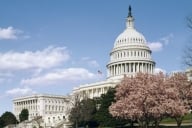You have /5 articles left.
Sign up for a free account or log in.
The National Science Foundation this week issued a statement calling on the colleges and universities that receive its grants to do a better job of preventing and dealing with harassment in science -- and the agency has warned that it would terminate funding to institutions that do not take required steps to prevent and deal with harassment.
The statement says that the NSF "holds responsible" colleges and universities that receive its funds. As a major federal funding agency -- the primary one in engineering and many other science fields -- the foundation's statements tend to get the attention of higher education administrators.
The NSF statement followed a letter this month from Charles Bolden, administrator of the National Aeronautics and Space Administration, that also urged colleges and universities to take these issues more seriously. He said that efforts to prevent and deal with harassment must not be viewed "as 'something nice to do' if the time can be spared, or something that human resources or the diversity and equity offices are responsible for, but rather as an integral and indeed necessary aspect of all educational program environments."
He too stressed NASA policy not to continue grants to institutions that fail to meet their legal obligations.
The agencies' statements come amid renewed attention to incidents of harassment in academic science involving scientists who had success at winning grants.
"In light of recent, multiple reports of sexual harassment in science, NSF reiterates its unwavering dedication to inclusive workplaces. NSF does not tolerate sexual harassment and encourages members of the scientific community who experience such harassment to report such behavior immediately," said the NSF statement.
In October, Geoff Marcy, one of the biggest names in astronomy, resigned as a professor at the University of California at Berkeley. He did so after it was revealed that the university had found that he had engaged in inappropriate conduct with female students over the years. The university didn't force him out, but he quit amid a public campaign for his removal by many who were outraged he wasn't fired. He was involved in many federal grants and federal science panels.
Then this month, U.S. Representative Jackie Speier, a California Democrat, spoke on the House of Representatives floor about the "pass the harasser" trend, in which faculty members found guilty of harassment or inappropriate conduct at one institution are later hired by others.
In many instances, advocates for women in science have raised questions not only about the actions of the harassers, but about the inaction of their university employers, who many say look the other way if a harassing scientist is prominent in his field and lands grants.
It is that inaction or backing of harassers that could land universities in trouble. Under federal law, the fact that a faculty member harasses does not by itself mean that the university violated Title IX of the Education Amendments of 1972. But the university could be found in violation if it lacked proper policies to prevent or deal with harassment, or didn't carry out such policies.
Many advocates for women in science cheered the NSF statement, saying they believed it was significant that the agency was taking this public stance against harassment.








